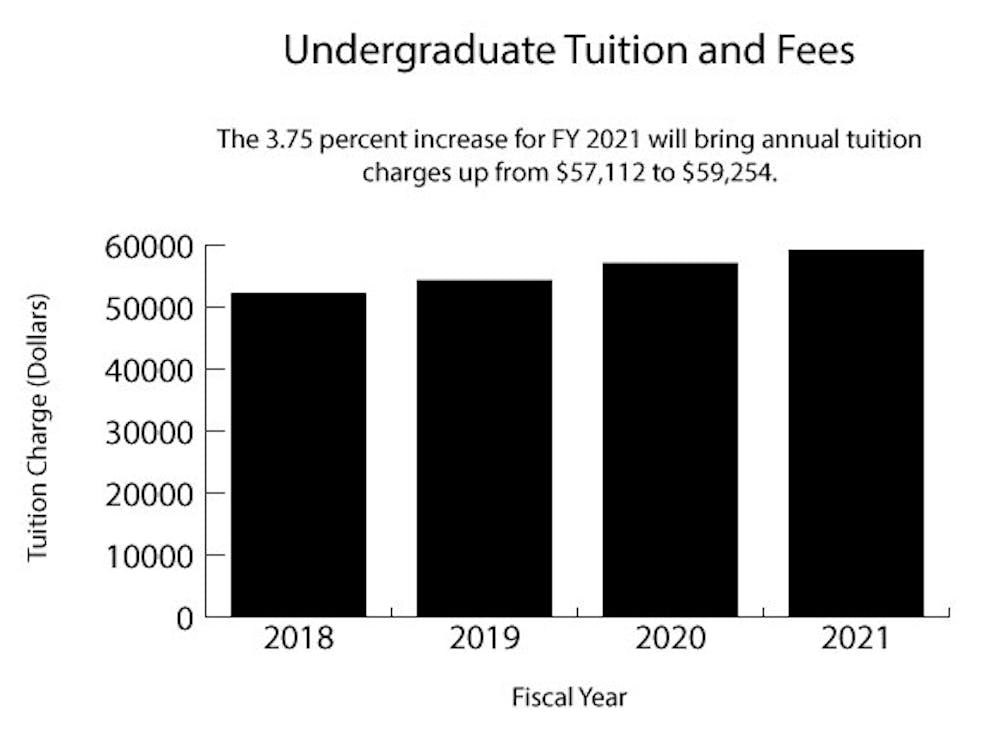The Corporation, the University’s highest governing body, approved a 3.75 percent tuition increase for undergraduate and most graduate programs during its winter meeting Feb. 8, according to a University press release.
Tuition for the 2020-2021 school year will increase to $59,254 from $57,112. Medical school tuition will increase by 3 percent to $64,974.
The University tuition rates are established each year by the University Resources Committee — a group made up of students, staff, administrators and faculty and chaired by Provost Richard Locke P’18 — before being approved by the Corporation. The URC includes seven student members — four undergraduate students, two graduate students and one medical student — each chosen by their respective student councils.
While the press release states that the URC works to keep tuition increases “as low as possible,” tuition fees still serve as roughly half of the University’s operating budget, according to Locke. The URC made a “conscious decision” this year to keep the tuition growth under 4 percent to signal that the University wants to “bring down the growth curve of tuition and fees,” Locke said. The University hopes to continue to decrease the percentage growth of tuition in future years, he added. The 2019-2020 school year saw a 5 percent increase from the previous academic year, The Herald previously reported.
The URC recommends the annual operating and capital budget to President Christina Paxson P’19 based on factors such as the investments the University wants to make, the physical upgrades the campus needs and the student resource centers that have requested increased funding. Paxson then presents the recommendation to the Committee on Budget and Finance, which compares the proposed tuition against those of the “20top universities,” Locke said.
The URC focuses on accessibility to make sure it is not “harder, especially for middle-class families” to attend Brown, Locke said.“We don’t want to be overpriced, we don’t want to be way underpriced,” he added.
The Corporation also approved 2.5 percent salary increase pools for faculty and staff. Faculty and staff members will receive different raises based on their individual performances throughout the year, adding up to a 2.5 percent total salary increase, Locke said.
In past years, the University has released a full budget at the Corporation’s February meeting, but this year marks the first use of a new base budget system that is meant to be “increasingly predictable” and “less reliant on tuition and fees,” according to the press release. A base budget system focuses on reallocating funds within departments to avoid having to increase the budget as much each year as the University previously has, Locke said. The University hopes to continue to decrease the growth of tuition and fees by growing the endowment through fundraising and investment.
In this new system, the full budget will be approved at the Corporation meeting in May. Tuition and fees were released this month to allow students to “anticipate the following year’s cost of attendance,” according to the press release. The financial aid portion of the budget will not be released until it is finalized during the May Corporation meeting. “Every year (financial aid) increases, (and) it always increases much greater than tuition and fees,” Locke said.





